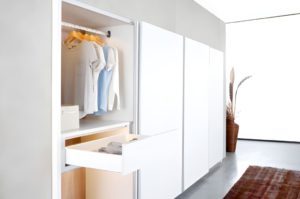Maintaining a comfortable home environment relies heavily on the efficiency of your heating, ventilation, and air conditioning (HVAC) system. One crucial yet often overlooked component of your HVAC system is the air filter. Keeping this filter clean not only enhances indoor air quality but also maximizes the performance of your unit. Understanding when it’s time to replace your HVAC filter can lead to significant cost savings on energy bills and improve the lifespan of your system. Here are three key indicators that suggest it’s time to replace your HVAC filter.
1. Decreased Airflow
One of the first signs that your HVAC filter needs replacing is a noticeable decrease in airflow throughout your home. When the filter becomes clogged with dust, dirt, and debris, it restricts air from flowing freely, leading to inefficient heating or cooling. Homeowners may find that certain rooms do not reach the desired temperature or that the system runs longer than normal to achieve comfort levels. It’s essential to monitor the airflow and ensure all areas of your home receive adequate ventilation.
Frequent servicing of the HVAC system is advisable, and according to Today’s Homeowner, homeowners schedule regular maintenance at least twice a year. This routine check-up not only includes the inspection of essential components but also emphasizes the importance of filter replacement. So, if you’re experiencing a decline in airflow, it’s crucial to address it promptly to maintain a comfortable and efficient home.
According to IBISWorld, there are over 111,000 businesses operating across the United States. These professionals understand the importance of regular maintenance and can assist in managing air quality issues. By consulting with an expert, you can ensure that your home’s airflow is optimized, enhancing both comfort and energy efficiency.
2. Visible Dirt and Dust Buildup
Another clear indication that your HVAC filter requires replacement is visible dirt and dust buildup around your home. If you notice more dust accumulating on surfaces or in the air, it’s likely a sign that your filter is not doing its job effectively. A clean filter traps particles that otherwise circulate through your living spaces, and when it is full, dust and allergens get pushed back into the air. This not only reduces air quality but can also aggravate respiratory issues for you and your family.
According to Forbes, to maintain a clean living environment, it’s recommended to replace the filter every one to three months. This frequency can vary based on usage and the type of filter you use. Regularly checking the filter can help you gauge its condition and ensure that your home remains a healthy space. When the filter is dirty, it’s working harder to pull air through, which can lead to increased energy costs.
Understanding the specifics of HVAC systems can empower homeowners to make informed decisions regarding their maintenance. For instance, many inexperienced individuals might underestimate the importance of changing the air filter as part of general upkeep. Resources like home improvement guides can be invaluable in educating homeowners on acknowledging signs that demand prompt action for the sake of comfort and efficiency.
3. Increased Energy Bills
Experiencing a sudden spike in your energy bills can be attributed to several factors, one of which may be a clogged or dirty HVAC filter. When filters are filled with dirt and dust, your HVAC system struggles to operate efficiently, leading it to consume more energy. This increased demand can manifest as higher costs on your monthly utility bill, which could take a toll on your household budget. If you’ve noticed that your bills seem unusually high without a corresponding change in usage, check your filter as a possible source of the problem.
According to home improvement experts, it is critical to have the HVAC system serviced at least twice each year. Regular service not only extends the life of your unit but also keeps your energy consumption in check. Maintaining your air filter should be a key component of your ongoing HVAC strategy to minimize expenditure while maximizing performance.





Be First to Comment